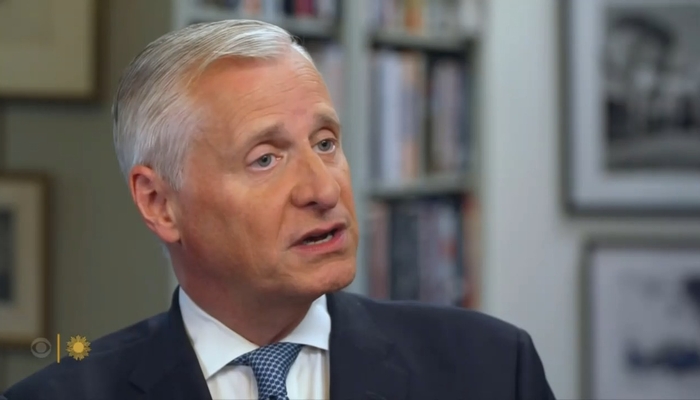By Scotsman Letters
Copyright scotsman

Speaking at an event this week, Nicola Sturgeon was asked about her failed Gender Recognition Act (your report, 9 September). She claimed to “respect” those who disagree with her and said she would make her case “respectfully”. The word “respect” is doing a lot of heavy lifting there. I can’t be the only one who remembers the former First Minister referring to those of us who opposed the reforms as cloaking “themselves in women’s rights to make it acceptable, but just as they’re transphobic you’ll also find that they’re deeply misogynist, often homophobic, possibly some of them racist as well”. There was nothing respectful about the despicable attack on those of us standing up for women’s rights, Ms Sturgeon. Jane Lax, Aberlour, Moray Divided society It is chilling to think our previous first minister can say openly that she thinks “Scots lost our minds on trans debate”. It implies she really does not understand the optics and harsh realities of giving a tiny minority rights that automatically must clash with the rights of the majority. When it comes to minorities she had no qualms about incessant SNP and Green motions in Holyrood attacking Israel and thus, even by default, attacking Scotland’s Jewish communities, which are even smaller than the trans community according to the government’s own figures. In reality the SNP, with immense help from the Greens, have split Scottish society and introduced division as a political tool, particularly over independence. Ms Sturgeon has simply cherry-picked a minority to stand up for yet has the gall to criticise those who do not share her views in such a “frank” manner. Was she ever the first minister for all Scots? Gerald Edwards, Glasgow Up the pole As ever more Saltires appear on Scottish streets, Nicola Sturgeon claims she’s “never been that into flags”. What? Sturgeon and her fellow nationalists enthusiastically weaponised the Saltire and turned it from being Scotland’s flag into an anti-UK symbol, reflecting division and enmity. Utter hypocrisy from the ex-first minister. Martin Redfern, Melrose, Roxburghshire Greedy lecturers Lecturers at Edinburgh University who are staging a five-day walkout are doing rather well in their salaries and the employer’s pension contributions (your report, 8 September). They are lucky to have such well-paid jobs. Lecturers are said to be getting on average £45-£75,000, with the average being £51,980. The University’s contribution to the pension fund was 25.8 per cent but this changed to 15.6 per cent from 1 January 2025 – still far more than in the private sector, where there are very few final salary schemes. No wonder Edinburgh University and other universities need to reduce staff numbers. Meanwhile, Tube train drivers want more money and a four-day work week, a maximum 32 hours. The media should disclose the salary bands of those organisations whose employees threaten to go on strike and just watch public support crumble. Clark Cross, Linlithgow, West Lothian Conference call Although little advertised or reported, a UN conference in Geneva will soon address Scotland’s right to self-determination. Scotland, a nation with the oldest flag in Europe, continues to face Westminster’s refusal to acknowledge its sovereignty — a refusal driven by fear that recognition would embolden nationalists and legitimise their claims. England also blocks Scotland from appearing as a distinct country at the United Nations. To admit otherwise would open the door to sovereignty. Scotland’s exclusion from the UN’s list of non-self-governing territories in 1954 was no accident; it was a calculated move to preserve the colonial concept of union. From 23-29 September, the UN conference in Geneva will revisit these issues under the broader theme of human rights, specifically Scotland’s right to self-determination under international law. This challenges the long-held fiction of an “equal union.” Recognition of Scotland’s sovereignty is not a question of if, but when. With it will come calls for reparation of plundered assets and international recognition of Scotland’s right to choose its own future. Herbert Petrie, Dyce, Aberdeen Keep promises Last week saw the Cabinet Secretary for Health and Social Care, Neil Gray MSP, all but confirm the Scottish Government will fail to meet its long-held promise to ensure that no one is waiting longer than a year for treatment by 2026. A clear commitment going into the Holyrood elections in 2021 has been quietly downgraded to a mere “aspiration”. The latest shift shouldn’t come as a surprise. Indeed, the Scottish Government has failed to deliver successive waiting times targets over the past four years and halted its commitment to the rollout of National Treatment Centres, as envisaged in the 2021 NHS Plan. Some 10,369 Scots were waiting more than a year for treatment in June 2025 and the 2026 target – while welcome – has long felt outside of the realms of possibility. Some progress is being made to improve the lives of those living with arthritis; record numbers of hip and knee replacements were carried out in 2024 compared to 2019. This suggests the increased investment of £106 million announced at the last Programme for Government to tackle waiting times is making some difference, even if targets are not being met. It is vital that this investment is replicated over multiple years if Scotland is to effectively tackle the historical backlog and injustice of people waiting such a long time for life-changing surgery. Lauren Bennie, Head of Scotland, Versus Arthritis, Edinburgh Long view With many people worrying about a surging Reform in polls, it’s maybe necessary to look at the medium to long-term in politics to gain some sort of perspective. Reform’s immigration and racist agenda clearly targets the poorly educated, those struggling financially and those who are just angry with their disappointing lives and want something, anything, to blame for it. Nigel Farage tells them it’s immigrants coming over on boats who are causing their hardships, despite, of course, failing to explain that there were no such boats before Brexit. The reductive and inarticulate language encouraged by Reform such as “illegals,” “woke,” “lefty,” and “snowflake” betrays a country that has lost any ability to think rationally. So if Reform gains power, what will it do? It will obviously cut immigration drastically and deport many, it will remove certain flags from public buildings and, of course, require swathes of Union flags to be unfurled. It will probably privatise the BBC and, crucially, create a favourable tax system for the wealthy. The country will be at loggerheads and violent protest will break out sporadically, particularly throughout England. Eventually, after gaining the satisfaction of seeing “illegals” and some “non-illegals” deported, will Reform supporters lives improve due to this? The answer is, of course, no. And, bit by bit, they will drift away, having been disappointed by far right politics yet again. Reform has no answers, only knee-jerk reactions to perceived problems which it knows will garner support from certain types of people. Once the rock throwing, the flag waving and the reductive “anti-woke” rhetoric has diminished we will be left with a clueless government of adolescents and failed Tories with nothing left up its racist sleeve. And it is at this point the forces of logic, decency and normality will return. Maybe even a coalition government of mainstream parties that will, somehow, return the UK to the often imperfect but liberal country it once was. Often a period of pain must be endured before health can be restored. Decent thinking people just need to keep the faith. D Mitchell, Doune, Perthshire 27 not out I often read the weekly article by Stephen Gethins, usually about the EU, with some degree of incredulity, but he really takes the biscuit on 6 September with the comment, “whilst there are 27 states pursuing independence within the EU…” What! Even if the EU is wonderful, the number of states pursuing independence is risible. Does he not know what the EU is about? William Ballantine, Bo’ness, West Lothian Save free speech Palestine Action, as far as I know, was designated a terrorist organisation after some of its members seriously damaged two RAF aircraft after breaking into a military base. This was not a terrorist act, but a stupid act of wanton vandalism which could simply have been dealt with by criminal law. In March they had been responsible for spraying graffiti on a building of Donald Trump’s Turnberry golf course, resulting in him phoning Downing Street to complain about these “terrorists”. The bedrock of free speech in a democracy is allowing people to say things about which others may disagree. If people want to say “I support Palestine Action and oppose Israeli genocide” they should be allowed to do so without fear of arrest. A question which remains unanswered to this day is how on earth a few unarmed civilians could cut the wire at RAF Brize Norton last June and get near our planes without so much as a challenge. A second question is why the trial of the Brize Norton group has been delayed until January 2027. William Loneskie, Oxton, Scottish Borders Write to The Scotsman We welcome your thoughts – NO letters submitted elsewhere, please. Write to lettersts@scotsman.com including name, address and phone number – we won’t print full details. Keep letters under 300 words, with no attachments, and avoid ‘Letters to the Editor/Readers’ Letters’ or similar in your subject line – be specific. If referring to an article, include date, page number and heading.



